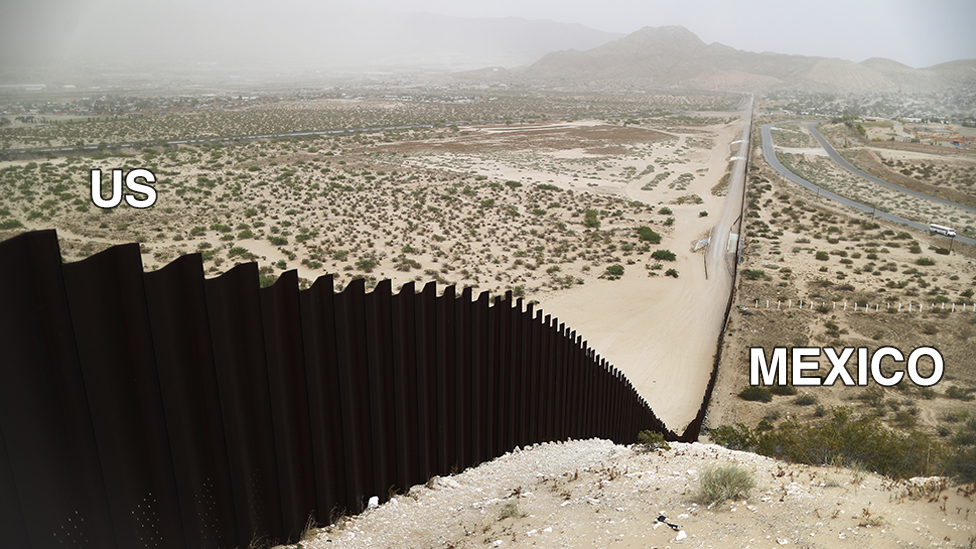US shutdown: Trump delays State of the Union address
- Published
Other presidents got money for a border barrier - why not Trump?
US President Donald Trump says he will not deliver his annual State of the Union speech until after the government shutdown is over.
On Wednesday House Speaker Nancy Pelosi withdrew an invitation for him to address Congress, saying government services should fully reopen first.
The shutdown has left 800,000 federal staff without pay since 22 December.
Mr Trump wants $5.7bn (£4.4bn) to build a wall on the US-Mexico border, but newly empowered Democrats have refused.
The row over border security has led to the longest government shutdown in US history.
What did Mr Trump say?
Having initially said the speech should be "on time, on schedule, and very importantly, on location", he conceded overnight that he could not deliver on his pledge.
He acknowledged on Twitter Mrs Pelosi's refusal to allow Congress to host the State of the Union address until the shutdown - now in its 34th day - had been resolved.
"This is her prerogative," he said, adding that he was no longer looking for an alternative venue but looked forward to making the speech in the near future.
Mrs Pelosi responded with her own tweet saying she hoped Mr Trump would back a bill passed by the House of Representatives to fund the agencies affected by the shutdown.
Allow X content?
This article contains content provided by X. We ask for your permission before anything is loaded, as they may be using cookies and other technologies. You may want to read X’s cookie policy, external and privacy policy, external before accepting. To view this content choose ‘accept and continue’.
Democrats have argued that with so many federal employees furloughed - temporarily laid off - or working without pay, the high-profile State of the Union address, which involves both chambers of Congress and the president, would not be logistically feasible.
But Mr Trump has denied that there were any security concerns posed by the ongoing partial shutdown.
He also rejected suggestions that he could deliver the speech from the White House or another location.
Boy sells art to help mother through shutdown
What is Mrs Pelosi's position?
In early January, the House speaker, the third most powerful politician in the US, had invited Mr Trump to address Congress on the agreed-upon date of the 29th.
"At that time, there was no thought that the government would still be shut down," Mrs Pelosi said in her letter on Wednesday.
"I am writing to inform you that the House of Representatives will not consider a concurrent resolution authorising the President's State of the Union address in the House Chamber until government has opened."
"Again, I look forward to welcoming you to the House on a mutually agreeable date for this address when government has been opened."
The return of the woman Republicans love to hate
Mrs Pelosi had first asked for the State of the Union, an agenda-setting speech by the president, to be delayed on 16 January, citing an unfunded Secret Service and Department of Homeland Security.
In retaliation, Mr Trump last week denied Mrs Pelosi the use of military aircraft on a trip to Brussels and Afghanistan - less than an hour before her flight was due to depart.
He asked her to stay to negotiate an end to the partial US government shutdown.
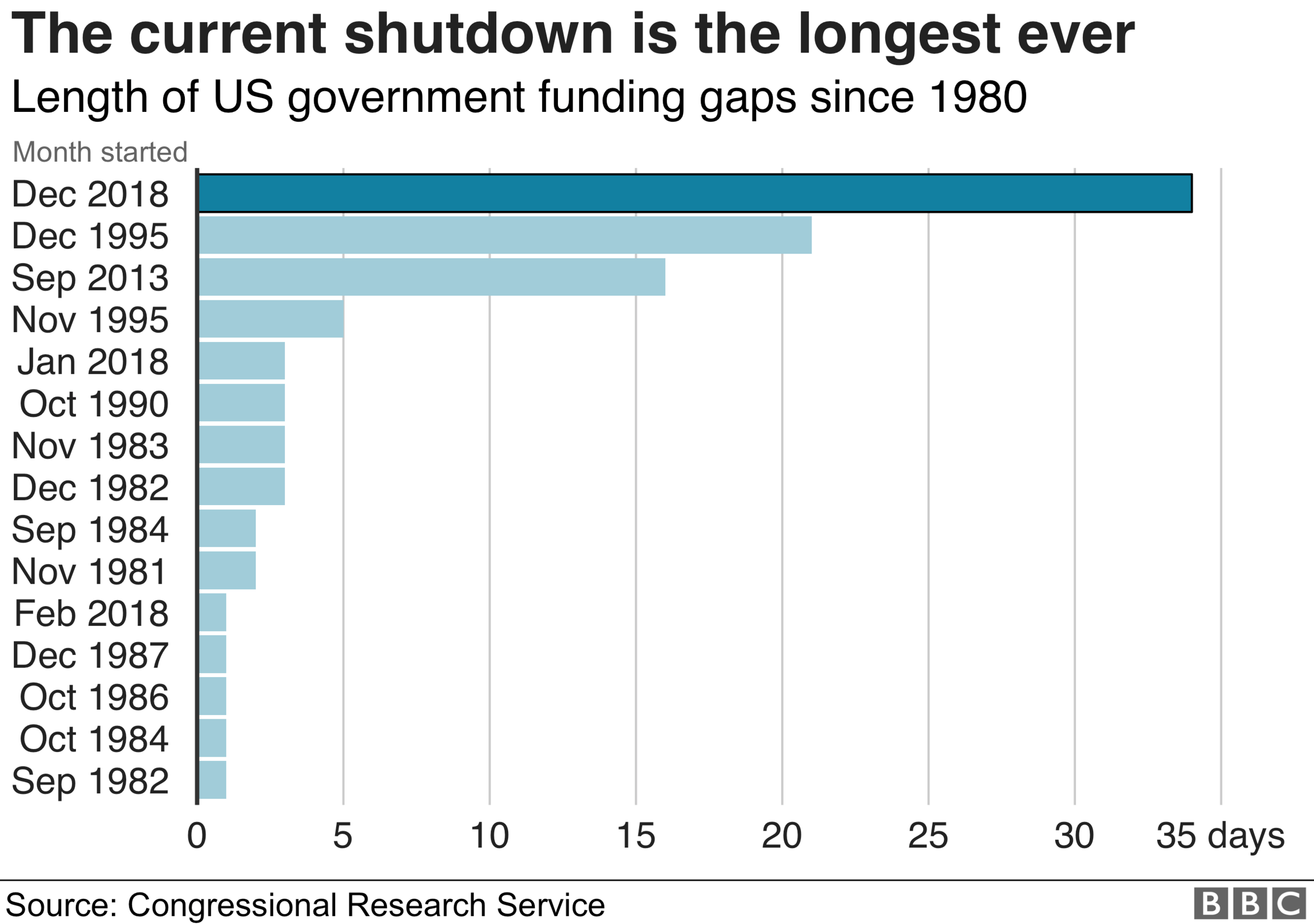


Why did the president blink?

For much of Wednesday it appeared that Donald Trump and Nancy Pelosi were headed for a dramatic confrontation over when and where he would give his State of the Union Address.
Then the president backed down.
The speech standoff was always a game within a game - a symbolic fight for the battle over the government shutdown, which in turn is a proxy battle for which party will set policy priorities for the next two years.
It won't be long before it's clear whether the president's retreat marks the beginning of the end for his line-in-the-sand demand for wall funding.
The Senate votes on two measures to reopen the government on Thursday - the first with wall funding and the other without. Both are expected to fail, but the pressure could be growing on Republicans to support the measure to reopen the government temporarily, allow furloughed workers to collect back pay and give the president an opportunity to deliver his State of the Union Address.
If the measure goes down in flames, the shutdown will drag into next week. Then it's back to the drawing board, with hints of new "compromise" proposals to come but no firm idea of how a deal can be made.
- Published16 January 2019
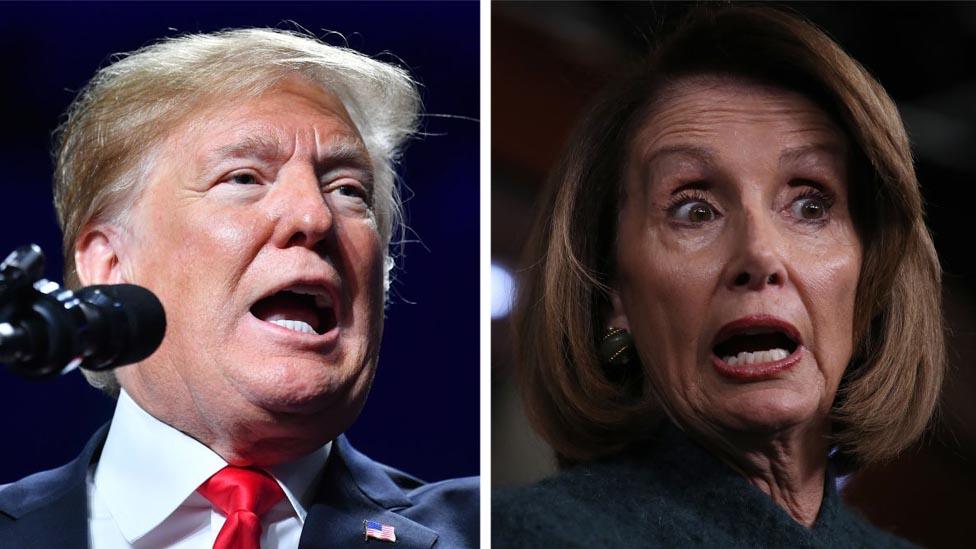
- Published24 January 2019
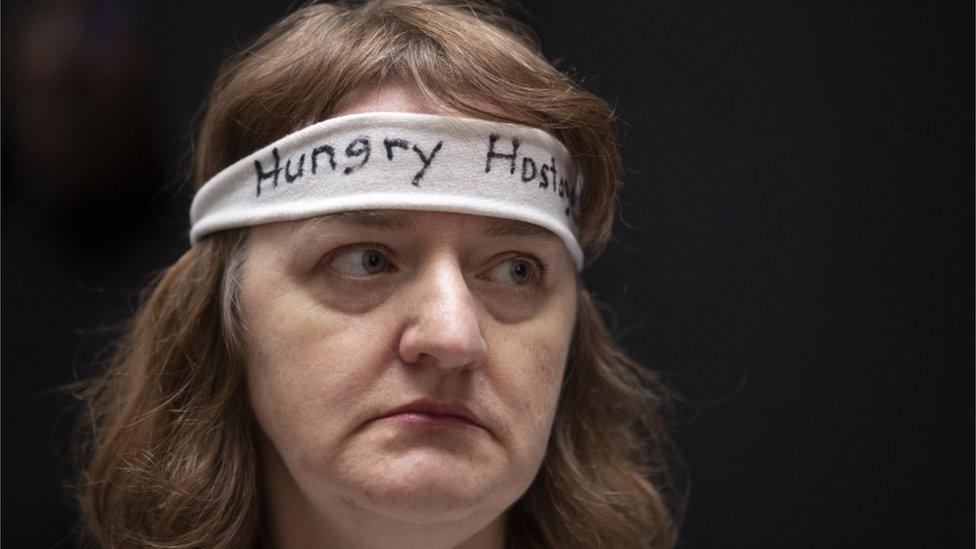
- Published16 January 2019
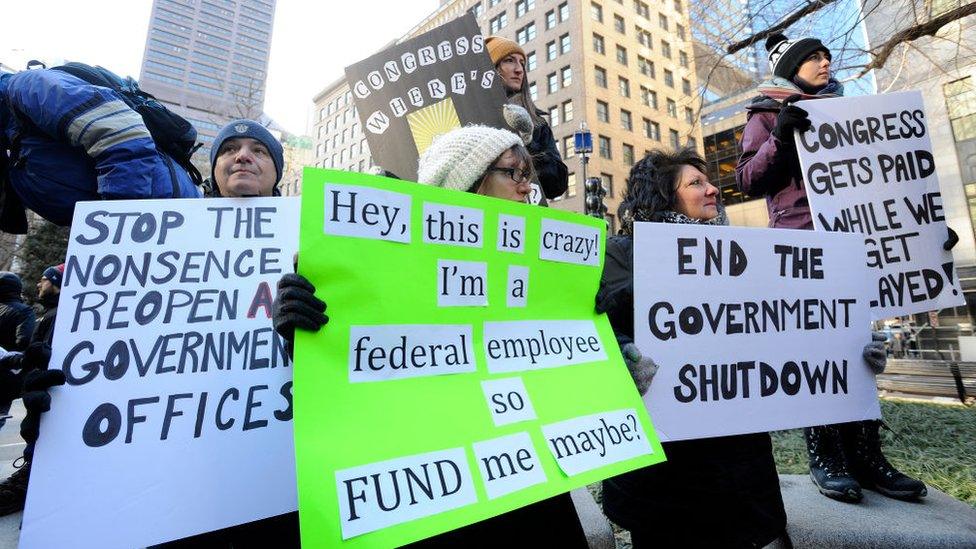
- Published31 October 2020
